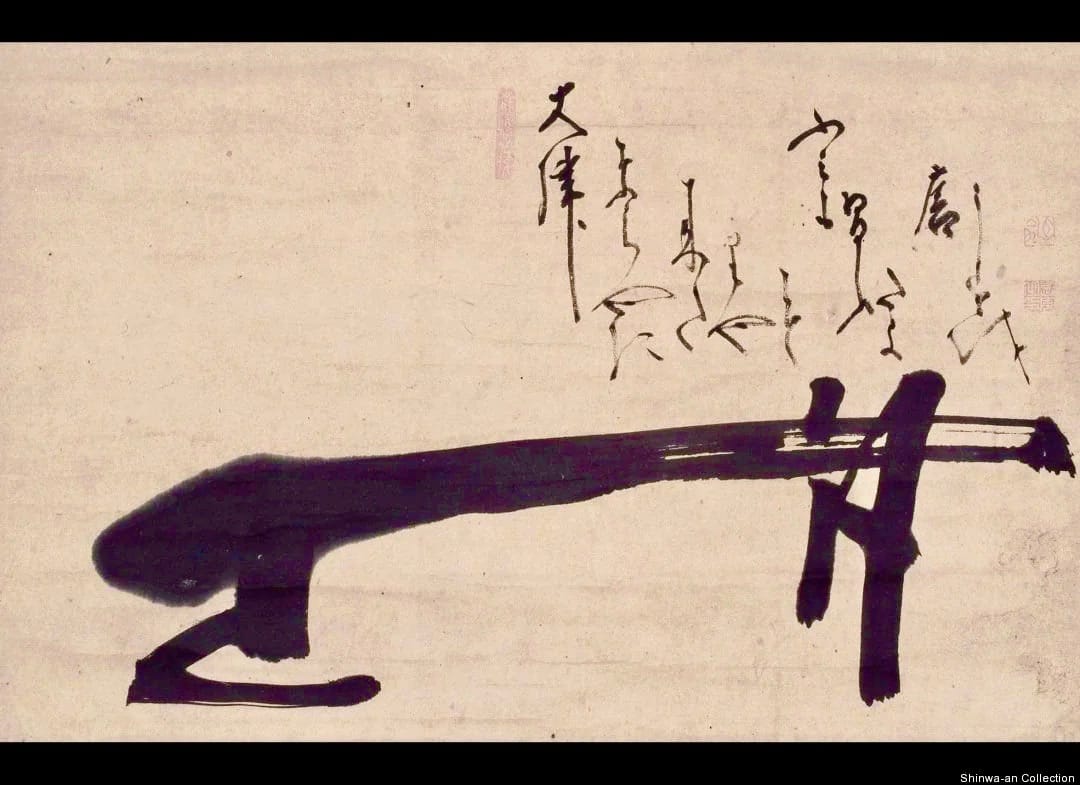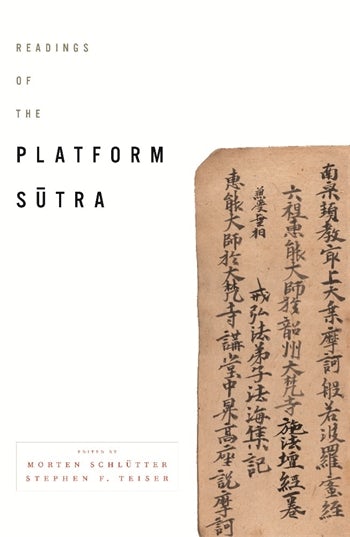Problems With The Platform Sutra: Scholars
There is a strong consensus among Buddhist scholars that "The Platform Sutra" is not what it presents itself to be....

We're moving into six-weeks of studying and practicing The Platform Sutra of the Sixth Ancestor. I've been reviewing some of the scholarly work that's been done in recent years on this pivotal text in the Zen tradition - not in preparation, but because I like that geeky stuff.
Most of the scholarly arguments are about the context of The Platform Sutra teaching and not about actual practice-awakening, so we won't get into the scholars' problems in the upcoming course. There is plenty of great sudden-awakening teaching in The Platform Sutra, so in the course, Tetsugan Sensei and I will focus the group on that.
I've also reviewed what Dogen had to say about The Platform Sutra. It is fair to say that one thing that modern Buddhist scholars and Dogen have in common is that they both have problems with this text. In the course, we also won't have time to deal with Dogen. His issues with The Platform Sutra are of interest to a few of our students of the Dogenophile ilk. But Dogen's issues also don't have much to do with practice-awakening.
In this post, I'll ventilate some of the problems modern Buddhist scholars have with The Platform Sutra. In the next post, due out tomorrow, I'll deal with Dogen's problems with the same. Afterall, somebody's got to set the old dog straight.
If you are interested in studying The Platform Sutra, registration for our course closes on Wednesday, March 6. More information can be found here:

What are the scholars' problems?
Essentially, there is a strong consensus among Buddhist scholars that The Platform Sutra is not what it presents itself to be, i.e., an autobiography by the Sixth Ancestor, Huineng, with selections of his sudden teaching.
Instead, it appears very likely from modern historical research that much (or perhaps even all) of the text is fiction. What's the evidence?
There is a lot, so I'll just summarize a little bit of it here. For example: it is extremely unlikely that the other monk in the famous poetry contest, Shenxiu, where Huineng triumphs to become the Sixth Ancestor, was even at the monastery of the Fifth Ancestor when (if) Huineng was there. Shenxiu, in addition, became a prolific writer and popular teacher, including for Empress Wu. So he almost certainly was not the one-chopstick numbskull that he's presented to be in The Platform Sutra.
In addition, Shenxiu was very likely one of several of the Fifth Ancestors legitimate successors whose teaching was probably in general alignment with the Fifth Ancestor. Therefore, one of the central claims of The Platform Sutra - that Huineng was the chosen one and the only true successor who carried the one true teaching is very likely false.
In addition, the earliest version of the text that has been found is from about one-hundred years after Huineng (~790). It may have been based on earlier versions, of course, that have not been found. The standard text that is used today is from about five-hundred years later (~1290). In comparison to the earlier version, the later version contains a lot of added material. Therefore, at the very least, a lot of what we now regard as The Platform Sutra of the Sixth Ancestor was written well after the death of the Sixth Ancestor and cannot be attributed to him.
It also appears that the text was curated to serve political purposes in the efforts of one group to undermine another. The hero's journey of Huineng, for example, echoes that of Confucius. The identification of Huineng with the barbarian South, the selection of sutras Huineng uses for support, and his householder status until just before he began to teach, all suggest a broadside challenge to the highly successful successors of Shenxiu as they were generally Northerners, upper class, and monastics.
Although the scholars aren't in agreement about who the text was written to support, it eventually supported the large and successful lineage of Mazu and probably the other emerging lines too, including what became the Caodong. However, whoever the teacher or group who wrote the initial versions of the text were, they are unknown to us.
John R. McRae, the translator of the version of The Platform Sutra that we'll use, puts it this way:
Much more about the scholarly perspective here (although I venture to say it'd be better for your actual practice to take the course than read this book):

My provisional view
One possibility: stories about Huineng kicked around for a while and coalesced into a text about one-hundred years after his death. That would not be unusual for the Tang Dynasty. Some of these stories, some of which might remain in the current text, might actually have some semblance to events that actually happened. But as I think you'd agree, it is hard to say what actually happened thirteen minutes ago, let alone thirteen hundred years ago.
The Platform Sutra is most favorably seen as the work of a community of realized Zen masters. Whoever the authors of the text were, they created and recreated a teaching to help students awaken in the specific and flowing contexts of Tang and Song Dynasties in China. That dramatically inclusive teaching emphasizes that the buddhanature includes everyone - including low-class householders - that everyone can suddenly awaken, and that everyone can go on in the post-awakening process with this one prajna-samadhi practice.
Whatever the source, The Platform Sutra has been an essential teaching in the Zen school for twelve-hundred years and many hundreds of great Zen masters in China, Korea, and Japan have highly regarded it. And many thousands, perhaps millions of Zen students have been powerfully influenced by it.
As for Dogen, well (the lady doth protest too much), not so much, but that's the topic of the next post.
Zen Master Qisong wrote about The Platform Sutra:
That is what we will be focussed on in the course.
Comments and questions are welcome (open to paid subscribers).
Thank you to paid subscribers for your support!
